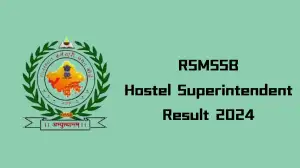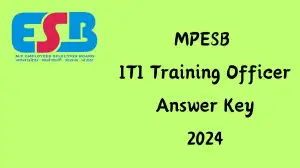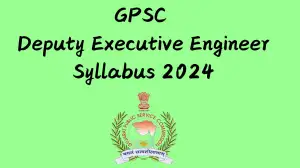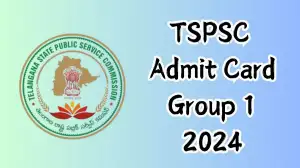UPSC CAPF Syllabus 2024 for the Exam Pattern, Essential Subjects and Key Topics
by Dheshni | Updated Jun 27, 2024
UPSC CAPF Syllabus 2024
The UPSC CAPF (Central Armed Police Forces) examination syllabus for 2024 encompasses a comprehensive framework designed to assess candidates' aptitude and knowledge for various posts in the paramilitary forces. The exam consists of two papers: Paper I includes topics such as General Ability and Intelligence, while Paper II focuses on General Studies, Essay, and Comprehension. Paper I tests candidates on areas like General Mental Ability, General Science, Indian Polity and Economy, History of India, and Current Events of National and International importance.
It includes topics such as Indian Constitution, Governance, International Relations, Security and Disaster Management, Ethics and Integrity, and Social Issues. The UPSC CAPF syllabus for 2024 is structured to gauge candidates' understanding of diverse subjects crucial for administrative roles within the paramilitary forces, ensuring they are equipped with the knowledge and skills necessary for effective leadership and decision-making in challenging environments.
The selection process for UPSC CAPF Assistant Commandant (AC) comprises multiple stages designed to assess candidates comprehensively.
- Physical Standards/Physical Efficiency Tests and Medical Standards Tests
- Interview/Personality Test
- Final Selection/Merit
- Written Examination
| Organization Name | Union Public Service Commission |
| Post Names | Central Armed Police Forces - Assistant Commandants |
| Category | Syllabus |
| Status | Released |
| Official Website | upsc.gov.in |
| Mode of Exam | Offline |
| No of Question | Paper-1: 125, Paper-2: 7 |
| Job Location | Across India |
UPSC Syllabus Paper-1 2024
UPSC Syllabus Paper-2 2024
UPSC CAPF Syllabus 2024 - Here
UPSC Syllabus Paper-1 General Ability and Intelligence
- General Mental Ability: Questions designed to assess logical reasoning, quantitative aptitude (including numerical ability), and data interpretation.
- General Science: Questions to test general awareness, scientific temperament, comprehension of scientific phenomena in daily life, and emerging areas like Information Technology, Biotechnology, and Environmental Science.
- Current Events of National and International Importance: Questions assessing candidates' knowledge of current events in culture, arts, literature, sports, governance, societal issues, development, industry, business, globalization, and international relations.
- Indian Polity and Economy: Questions covering India's political system, Constitution, social systems, public administration, economic development, regional and international security issues, and human rights indicators.
- History of India: Questions encompassing social, economic, and political aspects of Indian history, with focus on nationalism and the freedom movement.
- Indian and World Geography: Questions covering physical, social, and economic aspects of geography pertaining to India and the world.
Syllabus Paper-2 General Studies, Comprehension and Essay
- Part-A of the examination consists of essay questions that candidates can choose to answer in either Hindi or English, with a total weightage of 80 marks. The topics typically cover modern Indian history, focusing on the freedom struggle, geography, polity, economy, knowledge of security and human rights issues, and analytical ability.
- Part-B involves English language skills and is worth 120 marks. This section includes tasks such as comprehension passages, précis writing, developing counter arguments, and testing basic grammar and language proficiency.
About UPSC
The Union Public Service Commission (UPSC) is India's premier central recruiting agency responsible for conducting examinations to select candidates for various civil services and central government positions. Established under the Constitution of India, UPSC operates independently and is headquartered in New Delhi. It conducts a range of examinations, including the Civil Services Examination (CSE), Engineering Services Examination (ESE), Combined Defence Services Examination (CDS), National Defence Academy Examination (NDA), and many others.
UPSC plays a crucial role in recruiting officers for key administrative services like the Indian Administrative Service (IAS), Indian Police Service (IPS), Indian Foreign Service (IFS), and Indian Revenue Service (IRS), among others. Beyond recruitment, UPSC also advises the government on personnel matters related to civil services and conducts interviews to assess the suitability of candidates for various administrative roles.



